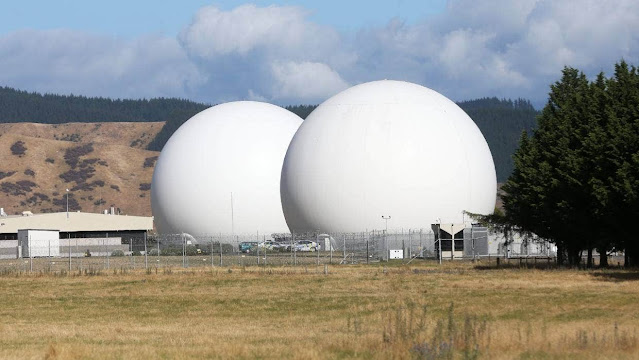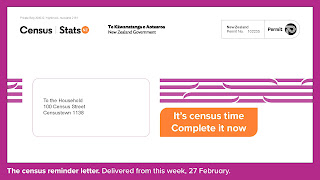Why New Zealand can’t trust its spies (GCSB & SIS)
A summary of spying in New Zealand, 2007-2014
Peter Dunne recently asked on his Facebook: Do you think there is freedom of speech in New Zealand?
I said no, thanks to you (by the crimes of the GCSB and your vote to reward them with more power).
Someone replied saying "I have no doubt that the GCSB has not the slightest interest in what I say unless my saying it poses a threat to my fellow citizens."
This is a very common response, unfortunately it’s also very ignorant. This is understandable: surveillance is a complex issue that has to my knowledge never been covered in the NZ media in overview, let alone anything approaching a summary that could make sense of years of news on the topic. So here's my attempt.
1. Privacy
To be unconcerned about the GCSB recording you, is to misunderstand privacy. Privacy is not about hiding bad things; rather it's essential to being human, and fundamental to democracy.
If every time you picked up the phone, you had to listen to a pre-recorded message stating "This conversation is being recorded by the government, will be stored in perpetuity for future searching and analysis, and may be used against you in a court of law", would that affect the way you used the phone?
How about a banner at the top of every website proclaiming that your visit has been recorded and indexed? Would that affect which sites you visited, or stop you making Google searches that could be misinterpreted as dangerous?
It should change the way you use telecommunications, because that's the reality Edward Snowden exposed. The problem is, it's all invisible, so it's very easy to ignore. Despite that, for the many who do take notice, it has a significant chilling effect on freedom of speech, freedom of association, freedom of the press, and the like. In many cases Kiwis do not in fact have these freedoms - there are many examples below.
2. Collaboration with foreign spies as a legal loophole
Snowden’s leak showed that the GCSB collects everyone's data en-masse and stores it for later easy searching by themselves, the NSA, and twenty other secret or semi-secret agencies in five countries ("Five Eyes"). The question isn't just whether the GCSB or other NZ spy agencies are interested, but in whether any one of their counterparts in Australia, Canada, UK or USA is interested. None of these countries have laws stopping them from doing whatever they want with the data of foreigners.
3. Checks and balances
There are very few checks and balances to ensure that your information is in fact only used to look for serious threats. Snowden himself, as a contractor, had access to this mountain of data - for instance he could search by your email address and see every email you'd written or received, websites you'd visited, and phone calls you'd made. He could do so at will, without repercussions to himself. As a fiercely patriotic American, he found the situation so concerning that he felt he had to inform the public, after seeing from multiple examples that going through "proper channels" didn't work.
4. Incompetent security
5. Professional liars
Five Eyes agencies have demonstrated time and again that they will lie to the public about what they actually do, as a matter of course because they are fundamentally secret agencies that are not accountable to the public. They say they exist for reasons of national security; but they also spy on innocent civilians for other reasons "in the national interest", such as securing prestigious jobs for ex-MPs.
6. New Zealand’s track record of abuse
Even ignoring the bigger issue of mass surveillance, NZ has a damning track record of illegal surveillance used against innocent citizens. Recent history has shown over and again that the GCSB is in fact interested in many people who neither posed a threat, nor were even suspected of posing a threat - that is, apart from the threat of making someone in power look bad:
The SIS used surveillance through abuse of spy laws to argue that people from Ngāi Tūhoe were terrorists running a paramilitary training camp. In 2007 the case led to search warrants being issued for six armed police raids around the country, involving 300 police and the arrest of 17 people; after five years and huge disruption and expense to both innocent accused and the taxpayer, all charges were dropped except unlawful possession of firearms charges for four people. The evidence presented by police included recordings of what were, in context, obviously jokes (e.g. using a catapult to launch a cow onto George Bush if he visited). If you're interested in the full story, watch the 2011 documentary Operation 8.
If you don't think things said in complete innocence are routinely used as evidence that results in prison sentences, you're ignorant and naïve.
Following the Snowden leaks, the 2013 review of the GCSB by the Cabinet Secretary found the spy agency had targeted and illegally snooped on more than 88 Kiwis between 2003 and 2012. Prime Minister John Key called the report "pretty damning", and that "he is committed to restoring public confidence in the organisation, and there will be legislative changes made". So what changes were made?
- Parliamentary services illegally tracked the movements and phone calls of journalist Andrea Vance in an attempt to discover who was responsible for leaking the review.
- Thanks to the narrow support of MPs including Dunne, the GCSB bill was passed, which expanded the legal powers of the GCSB and retroactively legalized their crimes. Yes, the response to discovering a department gone rogue - suffering from a massive lack of accountability - was to reward it with more power, without meaningfully increasing checks and balances, let alone holding anyone responsible for breaking laws designed to protect the public from abuse. It should come as no surprise that the bill was condemned by the UN Special Rapporteur, the EU Parliamentary Committee, the Human Rights Commission, the Law Society, the Privacy Commission, and other expert groups.
After this, journalist Nicky Hager's book Dirty Politics exposed various lies, immoral and possibly criminal actions and abuse of power of Prime Minister John Key and his office, MP Judith Collins, and blogger Cameron Slater, against their political opponents, undermining the democratic process. In response, Key claimed Hager's information was based on illegal email hacking. This was the second time Key was visibly enraged - the first was the tea party tapes scandal (which also resulted in police raids against media that should never have happened). Now, as then, he succeeded in temporarily discrediting the journalist, and shifting the attention of both the public and the police, from the perpetrators to the whistleblower. Key had no evidence supporting his claim, but he convinced the police to go looking for it. Police thoroughly raided Hager's home over ten hours, and obtained his travel information and banking records. The judge who issued the warrants for these actions would likely not have issued them had police supplied the proper information, and police requests to the airline and bank claimed it was part of a fraud investigation. This was disturbing on many fronts: The harassment and invasion of privacy of a citizen with no basis, going after a journalist for doing his job, the use of police as a political tool, and the willingness of police to be manipulated and to, in turn, deceive others in order to be maximally invasive.
The police did not respond to the complaints of opposition MPs based on the book, even though they presented actual evidence. Instead they responded to the accused, and went looking for what didn't exist. It was later confirmed by an independent review by the Inspector General of Intelligence and Security that the SIS had failed to uphold political neutrality and made many errors of judgment including denial of legitimate Official Information Act requests and the release of "incomplete, inaccurate and misleading information" that smeared the opposition (Sources: 1, 2, 3, 4, 5).
There are many other examples besides Ngāi Tūhoe, the 88+ citizens of the GCSB review, Andrea Vance and Nicky Hagar - more every year. Also in relation to Dirty Politics, police illegally obtained the banking records of Martyn Bradbury, the journalist who runs The Daily Blog. Illegal requests for information are an ongoing problem, with thousands that we know about, while most remain secret. Yet in the 13 years since 9/11, we passed 14 laws increasing surveillance powers - each contradicting the Bill of Rights.
There have been zero stories of actual terrorists being surveilled, zero stories of actual terrorist plots being uncovered, and of course zero incidents of terrorism since the Rainbow Warrior in 1985. Instead of actual threats, there are only vague claims from John Key that people linked to Al Qaeda have visited the country - but no evidence to back it up, because of course, like everything the spy agencies do, such information is secret.
The public record is 100% against the GCSB - even ignoring their crimes. Yet instead of stopping very expensive activities that are clearly not in the interests of the public, we have done the opposite - we have continued to step up surveillance powers, without meaningfully increasing accountability. We now have compulsory tapping into every Internet Service Provider in the country. We now have laws that allow police to treat anyone as a terrorist, with almost unlimited, targeted surveillance, and without evidence - let alone a search warrant (mere suspicion is all that is required). And none of this takes into account mass surveillance, which thanks to Snowden we know occurs continually, despite bald assertions to the contrary from our Prime Ministers. See here for sources, more information and further examples of invasive surveillance against innocent citizens.
More than this, our GCSB also spies on citizens in other countries. For instance, since 2004 the GCSB led Five Eyes surveillance of Bangladeshi civilians - and then passed on their data to Bangladeshi counter-terrorism agencies. Agencies who regularly tortured and killed civilians without due process. Agencies whom, after the Snowden leak showed Five Eyes involvement, the US government publicly suspended support for, citing "gross violation of human rights".
All of this echoes similar findings from the other Five Eyes countries: that their spy agencies operated in contravention of the law for many years, that they were abused for political means and to prevent journalistic exposure of crimes, that despite that their powers continue to expand, and that their oversight bodies remain mostly toothless.
Why is this happening?
There's no grand conspiracy. The first reason this madness is happening is people don't understand privacy. Nor do our lawmakers - you can count on one hand the number of MPs who understand the Internet. Even our Privacy Commissioner casually admitted he's technically incompetent.
The second reason is that people in power have conflicting interests; it's human nature. It's the job of police to catch criminals, and they have little regard for the privacy of the public if it slows them down (this applies tenfold for secret spy agencies like the GCSB due to their virtually non-existent accountability). Protecting the public is the job of the Privacy Commission, which is effectively toothless against the government - as admitted by the previous Commissioner. Government is rewarded for maximizing its power, not minimizing it. It's human nature for politics to be about maintaining power, not serving the people per se - even in a democracy. It's human nature to use the information you obtain, regardless of how you obtained it.
That's one reason why the possibility that surveillance might stop a criminal is not a sufficient reason to allow it. The other reason is that without privacy, there is no liberty at all. As Dame Anne Salmand said, we are undermining our hard-won freedoms. Look again at how this power has been used in this country, in the US, and in more repressive countries, to subvert journalism, silence political enemies, and turn minorities into “terrorists”. We are creating the powers of totalitarianism.
We can't control mass surveillance conducted by other countries - apart from protecting ourselves on an individual basis - but we can control whether New Zealand offers up the communications of its private citizens to the US. We can control what New Zealand agencies are allowed to do, whether they are accountable and the checks and balances in place to protect against the abuses that keep happening. We can roll back warrantless search powers and government surveillance of citizens beyond the Gestapo’s wildest fantasies. All it takes is more people looking at privacy through the lens of logic instead of intuition, and looking beyond their own immediate concerns enough to see the bigger picture.
(This post was originally posted to Facebook; see further updates and comments there)













Comments
Post a Comment